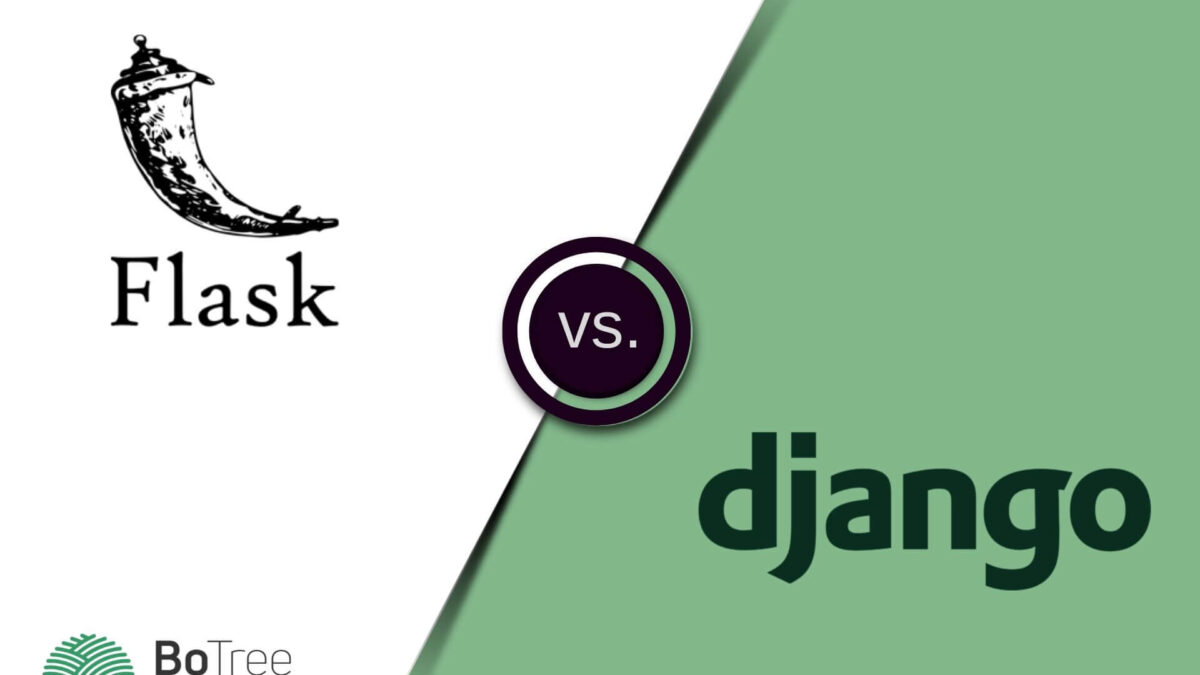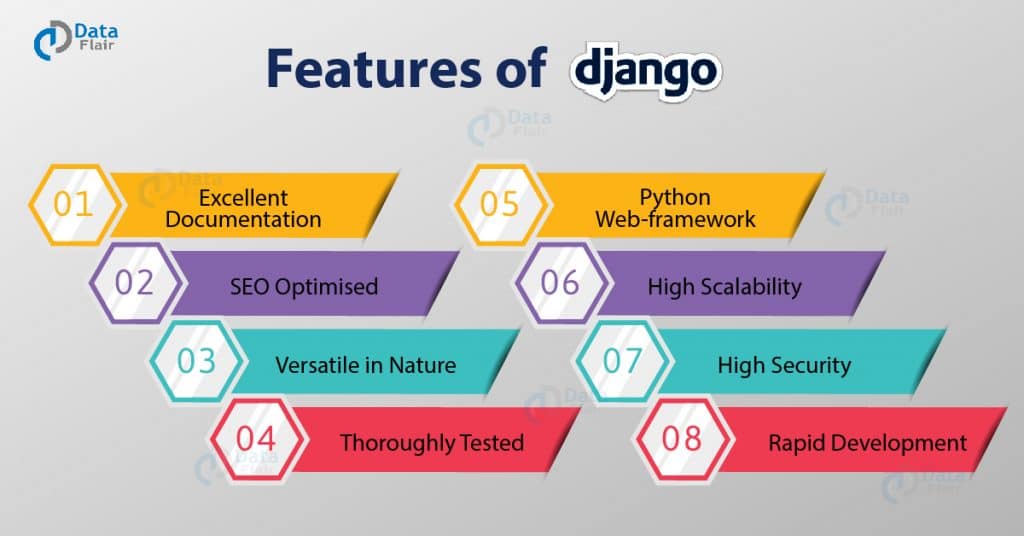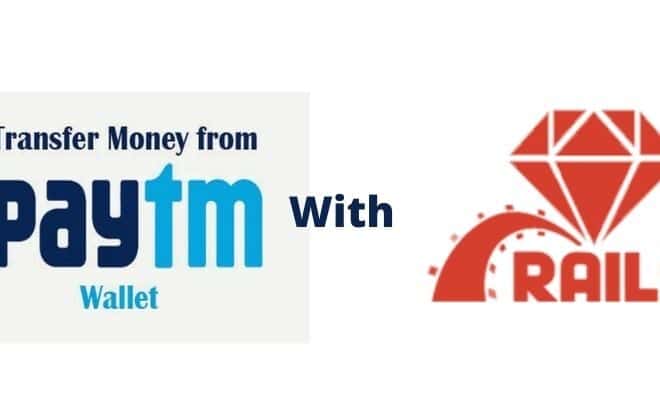
Flask vs Django: Django Flask Comparison 2022
Python has become a powerful programming language pertaining to its dynamic web development capabilities. On top of that, Python is now one of the topmost languages for Artificial Intelligence and Machine Learning.
Python, by itself, is a robust programming language. Combined with a dynamic framework, it becomes undoubtedly one of the best for web development. Two of the most popular frameworks for Python are Django and Flask.
What is the Django Framework?
Django is a web development framework, popular for its batteries-included approach. It means that the Django projects can be completed quickly because the framework offers a lot of features and libraries that reduce coding time.
Django framework gives a lot more flexibility and focuses on reusability of components. It allows computational capabilities and RestAPI to develop powerful web applications.
Want to know how Django model managers can help you maintain your code? Here’s a definitive guide for Django managers and how to implement them the right way.
Advantages of using Django for Web Development

Django has emerged as one of the most popular frameworks for web development in 2020. Due to its scalability and flexibility, Django framework is used by developers and organizations across the globe.
Understanding the major Advantages of using Django framework:-
1. Batteries included
One of the most important advantages of using the Django web framework is that it comes with batteries included. There is a lot of innovative stuff included in Django that developers can use.
It means that by importing the packages, developers can add a lot of functionality to the web application. They don’t have to write massive lines of codes, reducing the development time twofold.
Django allows dynamic web development and is a part of the convention over configuration paradigm. It also focuses on the philosophy of Don’t Repeat Yourself, encouraging developers to write less code.
2. Scalability
Another significant benefit of using Django is that it provides complete scalability options. Companies want a framework that can scale their application in the future. Django microservices authentication provides separate servers for scalability.
When enterprises want to scale their application, Django provides multiple servers for application, media, and the database.
If that’s not enough, it uses clustering and load balancing for running the application across different servers and distributing the database. Scalability is the reason why most enterprises are moving towards Django from traditional web development frameworks.
3. Python-based framework
Python web development with Django is one of the most demanded skills in today’s world. It is because Python is increasingly becoming a common programming language to code web applications.
Python is an easy programming language with clear syntax. It provides complete flexibility to developers while writing the code.
In computer science courses across the world, Python is the common programming language. It is the third most popular programming language in the world. There are many experienced Django developers that love working with Python.
4. Admin interface
Developers love Django because it reduces the time taken in backend administration and management. How so?
Django provides a built-in admin interface to manage data at the backend and administer basic CRUD operations. The interface is professional and versatile, allowing developers to focus on development more than management.
It reduces the hassle of creating your own admin interface at the backend and speeds up the installation of Django for web development.
Also Read: Django vs Ruby on Rails Comparison
What is Flask Framework and Why to Use
Flask python is a microframework for web development which focuses on simplicity and minimal coding. There are no extended libraries or modules. In fact, Flask provides more dynamism in development than Django. It allows developers to experiment much better than Django web development with Python.
The python Flask framework offers no libraries but extensions for form validation, object relations mapping, uploading mechanism and much more.
Difference between Flask and Django
Django web framework works with object relational mapping with its own Django ORM and utilizes data models. On the other hand, Flask doesn’t have any data models. So in a sense, developers can’t connect classes with databases in Flask development.
Advantages of using Flask for web development
Flask programming starts with two dependencies – Werkzeug – a WSGI utility library and Jinja2 – a template engine. Apart from that, being a microframework Flask development is really easy to use. It has no dependencies from the beginning and provides clean coding to the developers.
Here are a few benefits of Flask web development with Python:-
1. Higher performance
Since the Flask web framework has limited dependencies, it also has a low-level of abstraction. It means that there are fewer levels of abstraction in databases, requests, caches, etc.
It provides a higher performance from the beginning as it will not slow down due to several packages. The framework is fast and dynamic, allowing developers to achieve maximum performance.
It has a lightweight and modular design which is also a major contributor in delivering high performance.
2. Simplicity
One of the most significant benefits of using best Flask is that it is a simple and minimalistic web development framework.
Flask framework allows more freedom to developers, and they can experiment around because of its simplicity. They can utilize a large number of external libraries and add-ons in the application.
The simplicity makes the framework more extensible as the developers can do a lot of things in the framework using these libraries.
3. Documentation
Flask web development provides comprehensive documentation, making it easier for developers to understand and work with the framework.
The documentation is full of case studies and examples which provide a clear view of how the framework works with web development.
It has well-structured documentation, and developers can even work with some sample applications to really understand the look, feel, and operations of Flask.
4. Unopinionated framework
Flask is one of those frameworks that doesn’t follow many standards and conventions.
It means that you can implement things the way you want to. Developers can get more flexibility and dynamism while developing web applications with Flask rather than Django web framework.
This flexibility provides more control over development and offers more learning opportunities than Django web development.
Read more: 7 Reasons Django Web Framework is Perfect for Startups
Here are the Major Differences between Flask and Django
Django web framework |
Flask microframework |
| Django is a Python-based, open-source web development framework based on the MVC pattern and superior architectural design. | Flask is a microframework based on Python which doesn’t have any external dependencies or libraries to develop web applications. |
| Ready-to-use admin interface for handling project related complications. There is a function admin module, which allows developers to customize the framework. | Flask doesn’t have an in-built admin interface which doesn’t allow managing the system queries. Developers must create a functional admin interface for project management. |
| Django projects provide more features to developers as the framework has built-in features that allow superior functionality. | Flask follows no standard approach and provides more control to developers for building the web application, allowing them better implementation. |
| Each web development project can be divided into small projects which allows management easier. These small applications are simpler to develop and maintain. | Each project can only be a single application in Flask. Developers can’t divide the project, but they can add different models and views to a single project. |
| Django comes with form validation which can be integrated using the ORM and the admin site. | Flask programming doesn’t have any feature that allows form validation. WTForms can be used for forms. |
| Django focuses on convention over configuration and the Don’t Repeat Yourself principle. It makes the setup easier and allows developers to follow the set standards of development. | Flask follows a random and opinionated structure which allows developers to experiment more with the framework rather than follow the same set of standards for web development. |
| With Django’s ORM, developers can work with a number of databases, including SQLite, PostgreSQL, MySQL, and Oracle. It also helps in generating and migrating databases. | Flask gives developers the freedom to choose their ORM and work with separate databases. However, the learning curve is difficult and sometimes, developers get confused with databases. |
| Developers can define the user facing layer in Django using the built-in template engine that comes with Django scalability. It reduces the time and effort put into defining the layer and speeds up the user interface development through templates written in Django Template Engine. | Flask is based on the Jinja2 template engine. Not surprisingly enough, it is inspired by Django’s template engine. There is an integrated sandbox execution environment, which allows developers to build applications rapidly. It has an expressive template writing syntax. |
Also Read: Should You Use Django Web Development For Your Application?
Conclusion: Who wins in Django vs Flask?
Django and Flask, both are used to build high-traffic, security and scalable web applications and websites. However, it seems that Django is more popular than flask because it offers data science capabilities as well.
The libraries and packages in the Django web framework allow developers to build applications quickly and without writing a lot of code.
On the other hand, Flask is a proper micro framework for accelerating the process of web development through its non-standard development philosophy. It is a great web framework for static websites, which generate a huge amount of monthly traffic.
Developers can customize and extend Flask according to different project requirements. It allows them more control over development and doesn’t restrict them to a standard application development environment.
The ultimate choice depends on what you want to achieve with the framework. But once you do, you can start building high-quality web apps.




